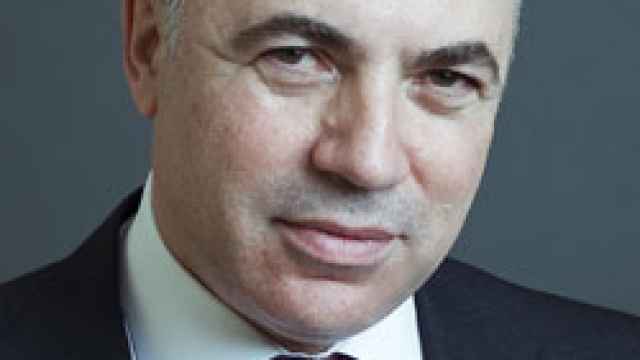
Felix Kugel
Vice-president & Managing Director,
ManpowerGroup Russia & CIS
The Human Resources (HR) profession is rapidly changing and expanding. As the world of work evolves, new areas of expertise are required to drive business results within organizations. Additionally, there is an oversupply of labor and an undersupply of the right talent on the global market. The oversupply of labor comes after a global recession followed by a tepid economic recovery, while the undersupply of talent was exacerbated by rapidly changing technology and business dynamics. The skills required to meet employers' needs from yesterday are already dated, widening the skills gap and perpetuating the global talent shortage. Because economic, demographic, technological and social forces will continue to evolve, companies must have a flexible and agile workforce. To achieve this, HR professionals must adopt three critical roles.
HR as Supply and Demand Experts
Although HR practitioners have encountered supply and demand issues before, they are now expected to be the de facto experts. They must understand how demand for their companies' products and services impacts the demand for talent and assess whether or not the results align with their business strategy.
Specifically, HR must ensure that their organizations have the right balance of skilled talent to meet changing needs and achieve business goals. HR leaders need to provide market intelligence supported by relevant data, understand their internal and external talent supply and how forces are reshaping the availability of required skills. If there is any misalignment between business objectives and workforce capabilities, HR leaders need to have a plan in place to bridge any gaps, and they must bridge them more quickly than in the past. Harnessing the data available to them as supply and demand experts, can help
HR ensure that their workforce is aligned with the current and future needs of their organizations to drive speed, agility, innovation and productivity.
HR as Marketers
The second role that HR must adopt is that of marketer. Since talent is now also a savvy and sophisticated consumer, HR needs to consider how organizational branding, messaging and image can help win in-demand skills. In a world of talent shortages, HR's role has expanded to include attracting and retaining customers/talent, in the same way that marketing segments and targets consumers of the company's products and services.
HR must think differently and shift from one-size-fits-all approaches to create value propositions that appeal to the needs of individuals and align with organizational objectives. To access talent in an increasingly competitive marketplace, organizations must pinpoint and market their strengths to attract talent pools with the skills their businesses need to succeed.
Marketing can't stop as soon as a company successfully gets talent through the door. Organizations need one-size-fits-one career paths that allow employees to advance business goals and allow them to develop their skills and grow. Leaders throughout the organization must be empowered to focus on, and be held accountable for, employee development, so that top talent stays motivated and engaged.
As with any consumer, companies must regularly seek out employee feedback to ensure that improvement is an ongoing process and act quickly to address any misalignment. Quantitative and actionable employee feedback will help improve engagement and ultimately benefit employers as talent is motivated and therefore, more productive and aligned with organizational needs.
HR as Designers
The third role HR leaders must adopt is that of designers—thinking differently about how to structure work to access, mobilize, optimize and unleash the potential of current and prospective employees. Instead of focusing solely on jobs, HR should expand its view to include the intended outcomes of work. To fully leverage the talent ecosystem, manage a diverse workplace, while continuing to increase productivity and innovation, work models should be reimagined. Structuring work innovatively to include various models from traditional (dedicated to the relationships between companies and employees) to strategic (linking HR practices with company objectives) can help advance business goals and attract skilled talent.
Working as designers, HR leaders must build systems to drive desired outcomes and develop the right balance of talent. As more and more segmentation and specificity of work, particularly knowledge work, is demanded, work will be divided into smaller and smaller tasks, which will be distributed to many people. Work will also increasingly be performed by freelancers and consultants willing to work on an outcome basis so that they can choose the work they want to do. A different way of thinking is needed to cultivate communities of work and balance the employment mix to include contingent, fully outsourced, partially retired and other workers—as permanent, fulltime employment is no longer by default the best fit for employers or individuals or what drives time to value.
A Message from The Moscow Times:
Dear readers,
We are facing unprecedented challenges. Russia's Prosecutor General's Office has designated The Moscow Times as an "undesirable" organization, criminalizing our work and putting our staff at risk of prosecution. This follows our earlier unjust labeling as a "foreign agent."
These actions are direct attempts to silence independent journalism in Russia. The authorities claim our work "discredits the decisions of the Russian leadership." We see things differently: we strive to provide accurate, unbiased reporting on Russia.
We, the journalists of The Moscow Times, refuse to be silenced. But to continue our work, we need your help.
Your support, no matter how small, makes a world of difference. If you can, please support us monthly starting from just $2. It's quick to set up, and every contribution makes a significant impact.
By supporting The Moscow Times, you're defending open, independent journalism in the face of repression. Thank you for standing with us.
Remind me later.

